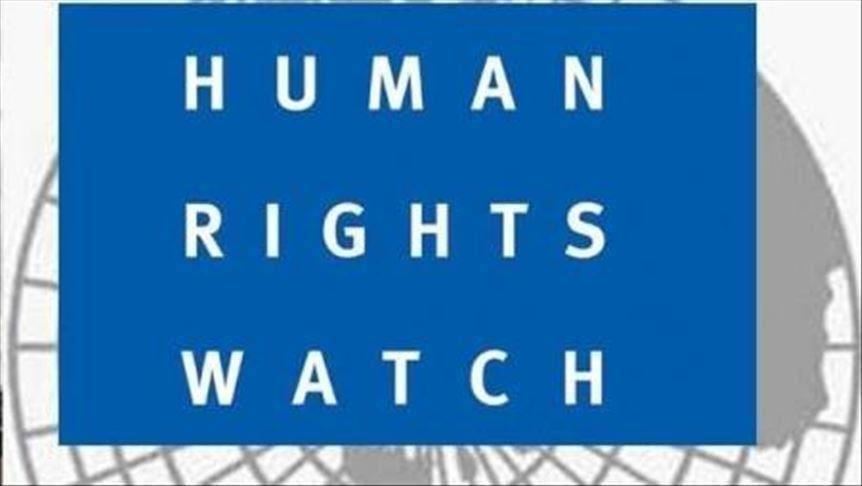Human Rights Watch urges India to step back in Kashmir
India should release political detainees and lift communications blackout in Kashmir, HRW South Asia director said

ISLAMABAD, Pakistan
Human Rights Watch (HRW) on Monday demanded the Indian government to lift the communications blackout and step back in Kashmir.
In a statement, the HRW South Asia Director Meenakshi Ganguly said since one week Kashmiris remain mostly under lockdown and their leaders are under arrest.
"It is now one week since the Indian parliament voted to revoke the special autonomous status provided to Jammu and Kashmir under India’s constitution, and to split the province into two separate federally governed territories. Kashmiris remain mostly under lockdown, their leaders under arrest. Phones, even land lines, are still severed. The internet is shut down. Their main mosques remained closed to Muslim Kashmiris during Eid today," Ganguly said.
There are reports of worried families unable to contact loved ones, and a lack of proper access to medical services, she added.
Referring to the situation in Kashmir, she said that some journalists have described mass protests which security forces quashed with tear gas and shotgun pellets, something the government denies. "There are unconfirmed reports of numerous ongoing arrests, including of activists," Ganguly said.
Since 1947, India and Pakistan have disputed ownership of the former Muslim-majority kingdom.
"A Pakistan-backed separatist movement in India’s Jammu and Kashmir state has already claimed over 50,000 lives since it erupted in the late 1980s. The security forces' response has included killings, torture, and disappearances. More human rights violations are certainly not what the region needs," the HRW South Asia director further said.
She urged the Indian authorities to ensure justice and accountability for human rights abuses, repeal abusive laws like the Public Safety Act or the Armed Forces Special Powers Act, which gives government forces immunity from prosecution, end aggressive treatment of Kashmiris at checkpoints and during search operations, and work towards the safe return of all the displaced, including Hindus displaced from the Muslim-majority Kashmir Valley in 1990.
More immediately, the authorities should release political detainees, lift the communications blackout, allow proper access to media and independent observers, and order security officials to respect human rights, she demanded.
"While international law does allow governments to temporarily suspend some rights in exceptional circumstances, this cannot be allowed to become the new ‘normal.’ Unless it wants to inflame tensions in Kashmir for another generation, the Indian government needs to step back, and fast," Ganguly concluded.
- Open letter to Modi
Meanwhile, 69 human rights activists and organizations sent an open letter to Indian Prime Minister Narendra Modi and expressed deep concern over the situation in Kashmir.
The letter was published by the International Federation for Human Rights on its website.
They request the Indian premier to immediately revoke the curfew, reinstate communications and release all the detainees unconditionally.
"Immediately and unconditionally restore the status of Jammu & Kashmir under Article 370 of the constitution of India," the human rights activists and organizations demanded.
They urged the Indian prime minister to both implement the UN High Commissioner for Human Rights recommendation made in 2018 and 2019 regarding the Jammu & Kashmir and respect the right to self-determination and guaranteeing fundamental freedom.
Anadolu Agency website contains only a portion of the news stories offered to subscribers in the AA News Broadcasting System (HAS), and in summarized form. Please contact us for subscription options.

